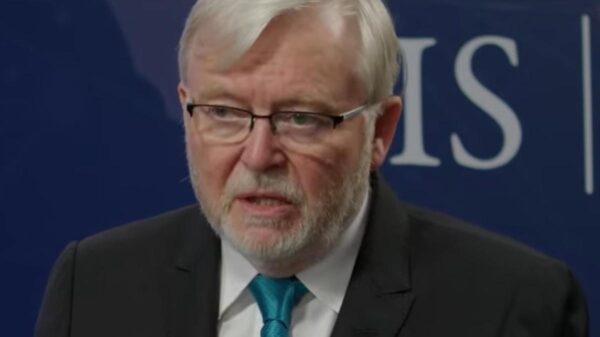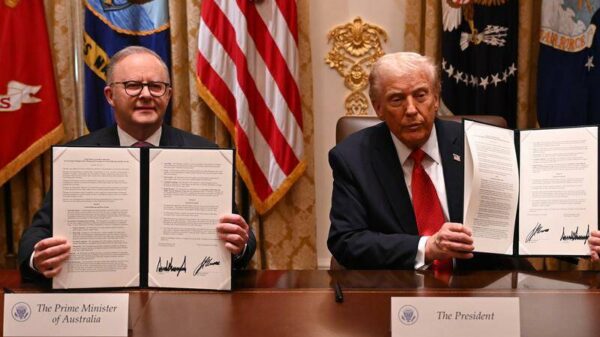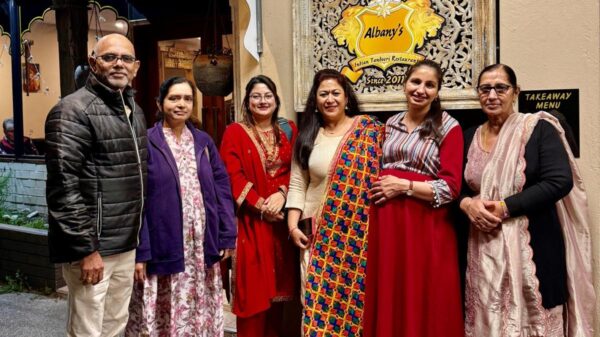As October marks Mental Health Month, regional leaders in Australia are encouraged to prioritize their well-being to maintain their vital roles within their communities. Leadership in rural areas is often seen as a continuous challenge, shaped by early mornings, extensive travel, limited resources, and the need to balance business and personal life. In this context, the importance of small, meaningful rituals has emerged as a key strategy for sustaining energy and focus.
The Challenge of Leadership in Rural Areas
For many leaders in regional Australia, the concept of “work-life balance” can feel elusive. Responsibilities often blend seamlessly, with professional and personal duties intertwining. A simple phone call at 7 a.m. from a staff member unable to come to work can disrupt any attempts to compartmentalize life. Rather than striving for an unrealistic balance, successful leaders are learning to embrace harmony. This approach allows them to navigate the demands of their roles without feeling overwhelmed.
Resilient leaders recognize that pursuing perfection can lead to frustration. Instead, they focus on establishing a rhythm that accommodates the varying pressures of their responsibilities. This adaptability is crucial, as it enables them to respond effectively to the shifting demands of both their professional and personal lives.
The Power of Small Rituals
Many seasoned leaders believe that small, consistent actions are essential for maintaining their stamina. For instance, a manager in Dubbo’s agribusiness sector shared that his “one small thing” is a daily 15-minute personal check-in with a notebook and coffee. “If I start with clarity,” he stated, “I end with energy.”
Another leader, a principal at a regional primary school, highlighted her Friday afternoon ritual of reflecting on the week while enjoying music with her office door closed. “It helps me finish with gratitude instead of exhaustion,” she explained. Additionally, a local dairy farmer emphasized the value of solitude during his early morning walks in the paddock before milking, stating, “That’s my thinking time. It reminds me why I love this life.”
These small acts, while seemingly insignificant, play a crucial role in nurturing a leader’s inner life, which is often neglected amid the busyness of daily obligations.
Energy, enthusiasm, and focus are vital components of effective leadership. Energy is not simply derived from rest; it is replenished through intentional pauses and activities that provide renewal. This might involve taking a brief walk, spending quiet time in nature, or engaging in a favorite hobby.
Enthusiasm thrives on connection. Great leaders cultivate curiosity and find inspiration in their communities and relationships. They recognize that enthusiasm diminishes in isolation but flourishes through meaningful conversations and interactions.
Focus comes from clarity about personal priorities. Grounded leaders are not swayed by the desire to please everyone; instead, they are anchored by their purpose and the impact they wish to create.
The best regional leaders embody the principle of leading from the inside out. They understand that personal harmony is not a selfish pursuit but a strategic one. When leaders are centered, their teams benefit from the stability and confidence they exude. Conversely, scattered leaders can create an environment of uncertainty.
So, what is your “one small thing”? It might be a daily practice, such as waking slowly and taking quiet time for reflection, or a weekly ritual that involves catching up with a friend who provides support. Monthly, it could be dedicating a day to think, reflect, and plan rather than merely executing tasks. Annually, consider taking a trip to renew your perspective and reconnect with your purpose.
There is no need for a complete life overhaul; rather, establishing simple habits can help remind leaders of their values and priorities amid the demands of their roles.
Embracing Harmony Over Hustle
Harmony is not synonymous with slowing down; it embodies being in sync with one’s responsibilities and self. It reflects a calm confidence that allows leaders to navigate storms with steadiness. Embracing harmony involves knowing when to delegate and trusting others to share the load.
Leaders who pursue relentless hustle may find themselves facing burnout. Those who cultivate harmony, however, are better positioned to sustain their impact. They understand the importance of knowing when to push forward and when to take a step back.
Ultimately, your “one small thing” may appear modest to others, but its significance lies in the restoration it provides. Whether it’s journaling, enjoying quiet moments with a coffee, or engaging in family dinners, these practices are powerful in maintaining a leader’s vitality.
Leadership is less about grand gestures and more about the small, deliberate choices that fuel resilience and passion. When asked how they stay motivated, leaders can confidently share, “It’s just my one small thing.”
In the end, it is the small habits—how mornings are spent, the nature of self-talk, the content consumed, and the relationships nurtured—that shape the essence of effective leadership. As you navigate your journey, remember that life consists of many moments; cherish and live them fully.





























































